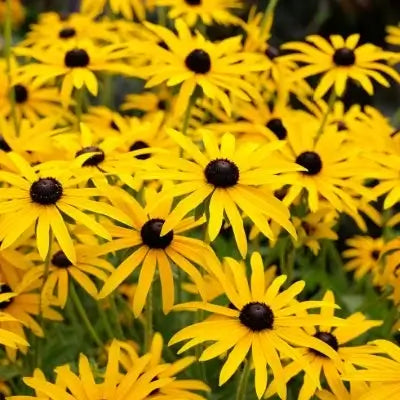Exploring the Luscious Blackberries: A Nutrient-Rich Powerhouse of Health Benefits
In the world of fruits, blackberries stand out as delicious, versatile, and a nutritional powerhouse. These tiny, dark jewels are beloved for their sweet-tart taste and vibrant color, but they also pack a punch regarding health benefits. In this exploration, we will delve into the intricate world of blackberries, uncovering their origin, nutritional composition, and the myriad ways they contribute to our well-being.
A Brief Botanical Journey of Blackberries
Blackberries, scientifically known as Rubus fruticosus, are members of the Rosaceae family, including roses and apples. They are native to Europe but are now cultivated in various parts of the world, including North America. Blackberries grow on thorny shrubs and comprise multiple smaller drupelets that cluster together to form the characteristic shape. These berries come in various hues, ranging from deep purple to black, and even shades of red and white.
Nutritional Marvels of Blackberries
Blackberries are a treat for the taste buds and a treasure trove of essential nutrients. They are deficient in calories, making them a guilt-free option for satisfying your sweet cravings. A one-cup serving of blackberries provides about 62 calories, offering around 8 grams per serving. This fiber content supports digestive health, helps maintain a feeling of fullness, and may contribute to weight management.
Vitamin and Mineral Bonanza of Blackberries
Blackberries are teeming with vitamins and minerals crucial to overall health. They are particularly rich in vitamins, an antioxidant that supports the immune system, aids collagen production for healthy skin, and assists in wound healing. Additionally, blackberries contain vitamin K, which is essential for proper blood clotting and bone health.
Antioxidant Powerhouse:
One of the standout features of blackberries is their impressive antioxidant content. The dark color of blackberries is due to their high concentration of anthocyanins, potent antioxidants. These antioxidants help combat oxidative stress in the body, which is linked to various chronic diseases and aging processes. Consuming foods rich in antioxidants, like blackberries, can contribute to overall health and well-being.
Heart Health Benefits:
The combination of fiber, antioxidants, and other compounds found in blackberries can positively affect heart health. The dietary fiber in blackberries helps lower cholesterol levels by binding to cholesterol molecules and aiding in their elimination from the body. The anthocyanins and other phytochemicals present in blackberries have been associated with improved cardiovascular function and reduced risk of heart disease.
Cognitive Function and Brain Health:
Emerging research suggests that the antioxidants and compounds found in blackberries may also benefit brain health. The consumption of blackberries may contribute to improved cognitive function.
Blood Sugar Regulation:
The fiber content of blackberries, combined with their low glycemic index, makes them a favorable choice for individuals managing blood sugar levels. This can be especially beneficial for individuals with diabetes or those looking to maintain stable energy levels throughout the day.
Incorporating Blackberries into Your Diet:
Integrating blackberries into your diet is delightful and accessible. These berries can be enjoyed in various ways, whether fresh, frozen, or incorporated into multiple dishes. Here are some creative and delicious ideas:
Fresh Snacking: Enjoy a handful of fresh blackberries as a convenient and tasty snack.
Smoothie Boost: Add blackberries to your morning smoothie for extra flavor and nutrients.
Oatmeal Upgrade:
Stir blackberries into your morning oatmeal or yogurt for added sweetness and texture.
Salad Accent: Toss blackberries into salads to balance flavors and vibrant colors.
Dessert Magic: Use blackberries to make pies, tarts, crumbles, and sauces for delectable desserts.
A Brief Botanical Journey:
Blackberries belong to the genus Rubus, a part of the Rosaceae family. These fruits result from the complex interplay of different species and hybrids within the Rubus genus. They are closely related to raspberries and share many botanical characteristics. Blackberries typically grow on thorny bushes, known for their vigorous growth and hardiness. The fruit comprises numerous small drupelets clustered together, forming a distinct and recognizable shape. While blackberries are commonly associated with their dark purple to black color, they can also be found in various shades of red and white.
Nutritional Riches:
Blackberries are celebrated not only for their exquisite taste but also for their exceptional nutritional profile. They are a great source of vitamins, minerals, and antioxidants. These berries are rich in vitamin C, providing a significant portion of the daily recommended. Additionally, they contain vitamin K, which plays a crucial role in blood clotting and bone health. The anthocyanins responsible for their deep color also act as powerful antioxidants, helping to combat oxidative stress and inflammation in the body. Blackberries also contain dietary fiber, which supports digestive health and can contribute to a feeling of fullness.
Culinary Delights:
The culinary applications of blackberries are as diverse as they are delicious. Their natural sweetness with a hint of tartness makes them a versatile ingredient in sweet and savory dishes. Fresh blackberries are a delightful snack, but their flavor profile shines when incorporated into recipes. They can be added to breakfast cereals, yogurt parfaits, and oatmeal for extra flavor and nutrients. Blackberries also make fantastic additions to salads, lending a unique balance of taste and texture. In the world of desserts, they are used to create pies, tarts, crumbles, and cobblers, showcasing their ability to transform into mouthwatering treats. The world of beverages is not exempt, as blackberries find their way into smoothies, cocktails, and even infused waters.
Conclusion
A Bounty of Wellness: In conclusion, blackberries are far more than just a delightful fruit; they are a nutritional treasure trove with various health benefits. From their role in bolstering the immune system to their potential benefits for heart health, brain function, and blood sugar regulation, blackberries genuinely deserve their place in the spotlight of health-conscious diets. As you savor the juicy sweetness of these berries, you can also relish that you are nourishing your body with many essential nutrients and antioxidants that contribute to your overall well-being.





























































